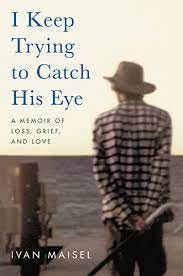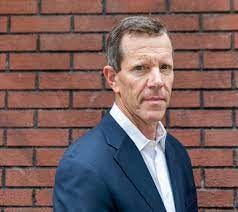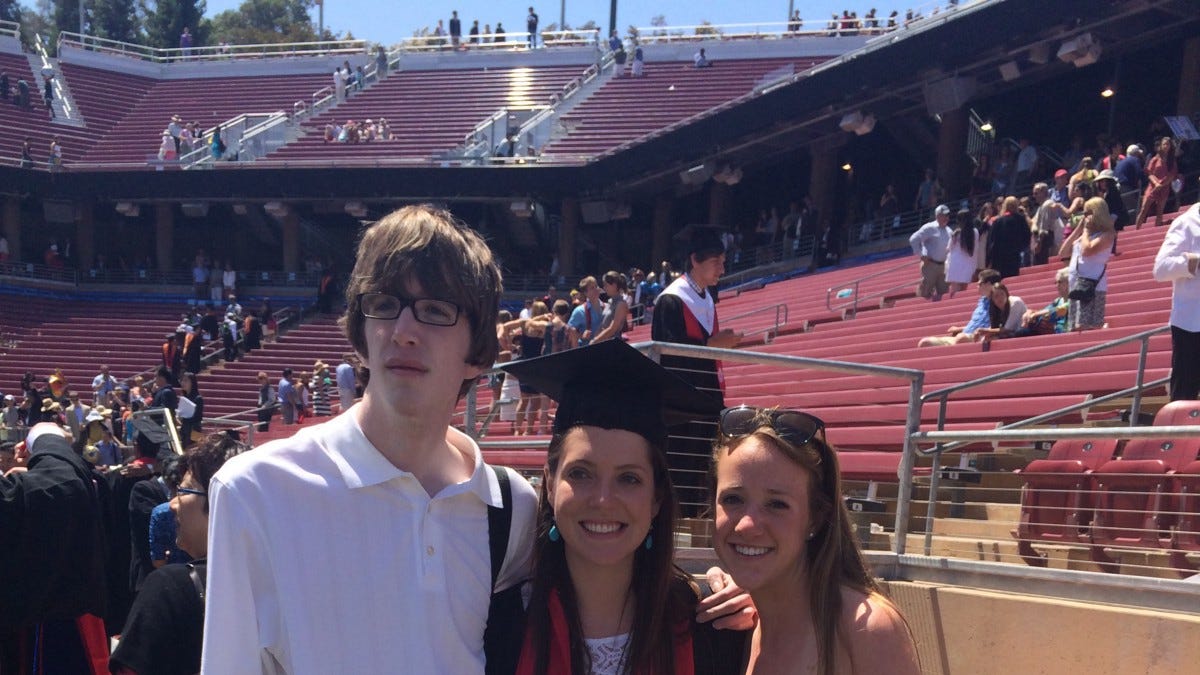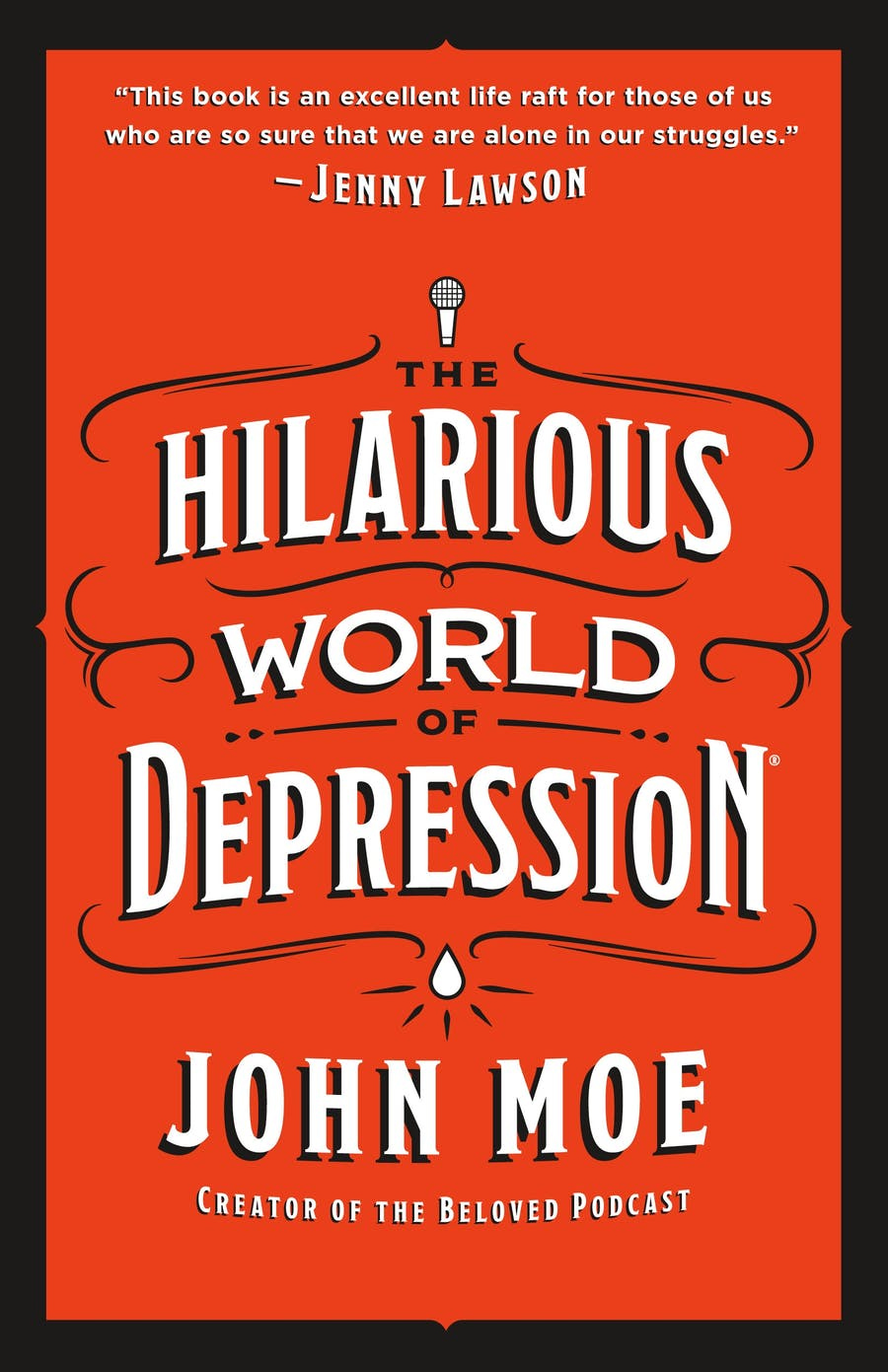I'm glad I talked with Ivan Maisel about his son Max
Thoughts on a surprisingly positive conversation
Hi. I don’t charge anything for this Substack. I use it to reach people at their leisure and convenience to talk about stories and developments related to mental health and to channel support to the Depresh Mode podcast. And that’s where I ask people to donate so that this may continue. If you get something out of this newsletter or the show or just the presence of the work I do in the world, go here, pick a level that works for you, then select DEPRESH MODE from the list of shows. And thank you.
A wonderful conversation I was reluctant to have.
This week’s Depresh Mode podcast episode is an interview with Ivan Maisel about his son, Max, and his book, I Keep Trying to Catch His Eye.
I originally didn’t want to do the interview.
I was sent the book in the mail, opened it, and it sat on my desk for a couple weeks, unopened but not discarded. I knew what the book was about because I knew a little bit about Ivan and what had happened in his family. Although we hadn’t spoken before, we’ve been Twitter mutuals for a while. In fact, I was kind of shocked when he followed me originally because, as a fan of sportswriting, I’ve been reading his stuff for many years. Ivan Maisel is a big deal in that world.
I was pretty sure he wasn’t following me for my trenchant knowledge of college football, as I have none. That’s Ivan’s specialty. It might have been because we had both lost family members to suicide, I lost my brother Rick in 2007, Ivan lost Max in 2015. And, faced with this event, we both wrote, because we’re writers and that’s one of the ways we experience the world. I’m writing this right now with a very unformed set of thoughts and a hope/faith that I can make more sense of them as I write.
I had read Ivan’s writing about Max on Medium. His essays about Max got a lot of well-earned attention because Ivan, again, a very good writer, can communicate both clearly and with heart.
So why was I reluctant to talk to someone I know and respect, who is an eloquent writer and thinker about a mental health-related topic that is close to my heart?
Because, I thought, on an instinctive level, it would be sad. Max died. And I was scared of the emotions a conversation like that would bring up in me. I was scared of provoking yet more horror in Ivan. I didn’t want to say the wrong thing. All this despite the fact that I have written and spoken about suicide for years now and my whole job is to have these conversations about mental health, a topic that necessarily includes occasional talk about suicide. Like, I am Mr. Let’s Talk About It. It’s my thing!
On a basic level - and this makes no sense but stay with me - I was nervous about bringing up the subject of Max’s death and upsetting Ivan in the process. EVEN THOUGH IVAN HAS WRITTEN AN ENTIRE BOOK ABOUT THE SUBJECT AND HAS A PUBLICIST SETTING UP INTERVIEWS ABOUT IT.
I never declined the interview opportunity to talk with Ivan but it took a few very polite follow-ups from the publicist for me to finally say yes and pass it to Gabe for scheduling. I knew I had to do it. I knew this was part of the work I had signed on to do in this world and of course I knew that Ivan Maisel is a master communicator.
So we spoke.
And we talked about suicide. Had to. But that was only a part of it. Suicide is only one element in a larger story that includes how a parent makes sense of a child with differences, how a child makes sense of the world, how we move forward when faced with loss, and all the iterations of love in a story like this. If you, dear reader, have never experienced shocking loss and grief that feels incomprehensible, well, I hope you never do. But you probably will. At least very possible.
And then you have to go on anyway. That, my friends, is the part that is so fucked up.
I write about, in my own book, how baffling it was that the sun came up the morning after Rick died. It just came up anyway. This wasn’t surprising, I guess, but it was this moment of, “Well, hell, I guess everything just keeps going no matter what.” No pauses, no alterations, just the relentless slog of physics and time.
One of my favorite moments in my interview with Ivan is when he mentions that his wife, Meg, disavowed the use of prepositions in respect to one’s response to grief. You don’t get over it, don’t get around it, don’t get through it. No prepositions.
In the end, this week’s episode with Ivan Maisel meant a lot to me. Obviously. I mean, check out the word count for this item in the newsletter compared to the graph or two I normally knock out. But more so, it meant a lot to me because it’s positive. Nothing lessens the pain of Max’s loss for Ivan but he puts everything into active conversation: death, guilt, grief, suicide, perseverance, endurance, hope, disorientation. He leaves nothing out. In doing THAT, in making Max an active element in ongoing dialogue, Ivan gathers strength and then reflects it back to the reader or, in our case, listener.
Max Maisel died but that’s not the point of what Ivan is doing with his work. The point is that Max lived. And so must we all.
Here’s my book, by the way
The people at the publisher believe, quite correctly, that I should remind people that I wrote a book because then those people may wish to buy it. Which is a desired outcome. “Oh yeah,” I sometimes say in response as they surely shake their heads in New York City.
You can give it as a gift this holiday season. It might make someone understand depression more, or at least make them give you a puzzled look, which is its own reward.
I didn’t know where else to put this thought so I’ll put it here
Suicide is the end of a story of horrible pain for one person. And that person will never, ever, fundamentally, definitionally get to know life without that pain.
But that same suicide is the very first step in a very long story of pain for everyone that person knew. The pain is duplicated and then distributed.
If you die this way, if you go that route, please know that you are causing tremendous pain to everyone else for the rest of their lives. Contrary to what a desperate suicidal mind may believe, they won’t be better off without you. Thinking that is a case of your brain lying to you.
National Suicide Prevention Lifeline - 800-273-8255
Crisis Text Line - text the word HOME to 741741
I’m John Moe. I’m glad you’re here.






I've heard Ivan on a number of sports podcasts, so I was looking forward to this one and it didn't disappoint.